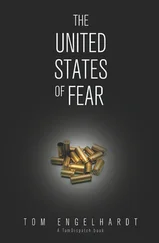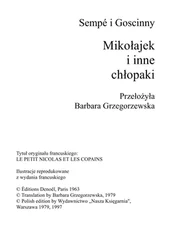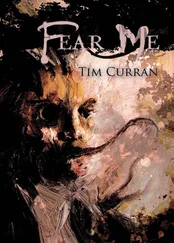He rarely saw the fields, or the slaves who worked the fields. A man named Mister Colson rode a horse and had a gun and came through once a day to talk to Master James. One time had one of the field slaves with him, had his shirt torn open on the side soaked with blood. Master hollering at him—“Don’t bring this here! What’s wrong with you?” And Colson yelling back and then Colson left the farm, replaced by Nettles.
Joseph worked in the wood shop. Cassius said Joseph had an easy life, had nothing to complain about. Master didn’t even come to the cabin anymore. When Joseph would walk down by the river and watch the boats, though, it weighed on his mind. Where did they go? Who was on them? The boats no longer a kind of decoration but part of a mechanism connected to something invisible that he was beginning to realize did not belong to Master James.
Enoch returned the next spring. He wore a red silk scarf around his neck and had on real trousers. More important, he had a musical instrument with him. Joseph had never bothered about music one way or the other, although he had an ear for spoken language. This was something different, though.
Enoch said it was a banjar. A large round hoop with a skin over it, the skin held in place by a metal ring with shiny brass bolts. The neck was a rich cherry red and it tapered up to the head, which scrolled and curled around itself. The polished wood shone. As soon as Enoch played a note, Joseph was free. The sound was freedom. Enoch played two or three simple, rhythmic songs. Where you thought there would be a note, there would be no note. Then when you thought a silence, a note tapped you on the back of the head; when you turned around, it was gone.
One day, after weeks of begging, Enoch let Joseph hold the banjar. He was instantly flooded with a sense of presence and power. Joseph strummed the strings down.
“Do one at a time,” Enoch said. “This way.” Showed him how to press down with his fingernail and snap the string, like flicking away a fly from a cake. Press and flick. Joseph did it, and a note bloomed, dark as molasses, with something peppery in its center. Joseph listened to the note slowly fade. He did another. Like breathing. He was lost to the room and the world until Enoch said, “That’s all you do today.”
Joseph looked up, almost panicked. “Show me.”
“You come back sometime late and I’ll show you.”
He quickly learned the few tunes Enoch had to teach him. He would sit and play for as long as Enoch would let him, sometimes snapping down with his fingernail as Enoch had taught him, and sometimes plucking with his thumb and up with his forefinger. The sound of the notes, each one flaring up as he plucked it and then dying down and fading away, to be replaced by another, and another.
He learned songs from Marcellus, one about Black Mattie that his mother told him not to sing, and from one of the laundry women, about the bullfrog dressed in soldier clothes. He found that by turning around some of the finger patterns in the little tunes he could make new songs.
Master James had him play for visitors. There were glittering parties where the best silver and crystal were set out (after being meticulously polished by the servants, including his mother). After dinner, Joseph would be called in under the chandeliers to play and sing. The ladies wore cloth gowns, and two of the men had stains on their waistcoats. “What a prize he is!” one of the ladies said. Everyone looked at Joseph while he performed, and he liked it. The others were unseen, removing the plates, setting out dessert, but he was seen.
His mother’s hair was going gray, and her legs were slightly bowed, and she was not yet thirty. She kept a rag doll on her sagging bed; she had had it since she was a girl. Master had given it to her, before she was old enough for him to use and then discard. Now she slept with the doll. Her treasures were a Bible that Mistress had given her before the trouble started, and out of which she had learned to read, and a few trinkets, tiny presents from Master — a little tea cup — cracked and then glued together — a hand mirror with a pearly frame. A small ceramic dog. One day, Joseph, fifteen years old, asked her where they came from and she told him they were gifts from Master, with a kind of pride. By that time Joseph had figured out the business Master had had with her. Astonished, furious, he asked how she could keep the trinkets after what he had done. Because they are pretty, she said. They are mine. That damn drunk, he said. She looked as if she were going to slap him, then she turned, shaking her head, put the things in order on the small table by her bed.
He suffered attacks of melancholy, of suffocating sadness. To combat the feeling, he played the banjo for himself. It consoled him. Why it did, he could not say. Alone, he had a brother in the banjo. For others, he played musical jokes, tricks, sleight of hand. The visitors mistook it for simple happiness.
Aurora liked to watch him play and that did not hurt, either. Tired of thinking about her by himself in the rushes, one day he got her an hour before dinner and asked her to take a walk with him.
“Where you want to go?” she said, making it clear with her eyes that she knew.
Looking once over her shoulder they walked slowly past the number two barn and the smokehouse and then started running when they knew they were out of sight.
It became a constant torment to him. For three weeks they met, becoming increasingly reckless in their meetings. Until one day she failed to show up for a rendezvous and Joseph went looking for her. He couldn’t find her at the dairy, he couldn’t find her at the Upper Quarters. He went to barn number two and couldn’t find her there either.
He saw her the next day, walking quickly from the Mansion House toward the Upper Quarters, and he ran to catch up with her. She wouldn’t talk to him or even look at him, and when he grabbed her arm she shook him away almost violently and quickened her step away from him, leaving him standing there like a scarecrow. The talk got around that she was now living in the Mansion House, Master’s newest “keep Miss.”
When Marcellus told him, in a tone half-amused, as if to say Welcome to the world as it is, Joseph looked at the face, with its lines, its mustache, and felt something fall off a table in his mind, as if a wind had pushed it, and the next thing he realized, Cassius was pulling him off of Marcellus and holding him as Joseph struggled to hit him, or anyone, anything. Marcellus, who had fallen backward, took the opportunity to stand back up and slap Joseph hard, open-hand, across the face. “Your own Daddy doing your girl.” Joseph lunged at him again, and Cassius had to drag Joseph out of the stable and pin him on the ground until he stopped fighting and started weeping.
Later that afternoon, he returned to the cabin he shared with his mother, with his shirt ripped and his clothes disarranged. His mother asked him what was wrong with him, and she got it out of him without much trouble.
“I am going to kill him,” he said.
She got a frightened look on her face and said, “You do that, you kill me.”
Gradually, the edge of anger wore down enough for Joseph to think clearly, and that was when he began to think about escape. Enoch told him the names of two other slaves on the farm, hire-outs from Belle View, who were connected with people and who could get word to them and help Joseph escape. It took nearly two long months in the autumn. One day, a man he did not recognize approached the cabin. The man pulled something from under his shirt and set it down inside the cabin door and left without a word. Joseph never saw him again. It was a packet containing some papers and an address in Wilmington, Delaware. Across the top of the page with the address were written the words “MEMORISE AND BURN.”
Читать дальше










